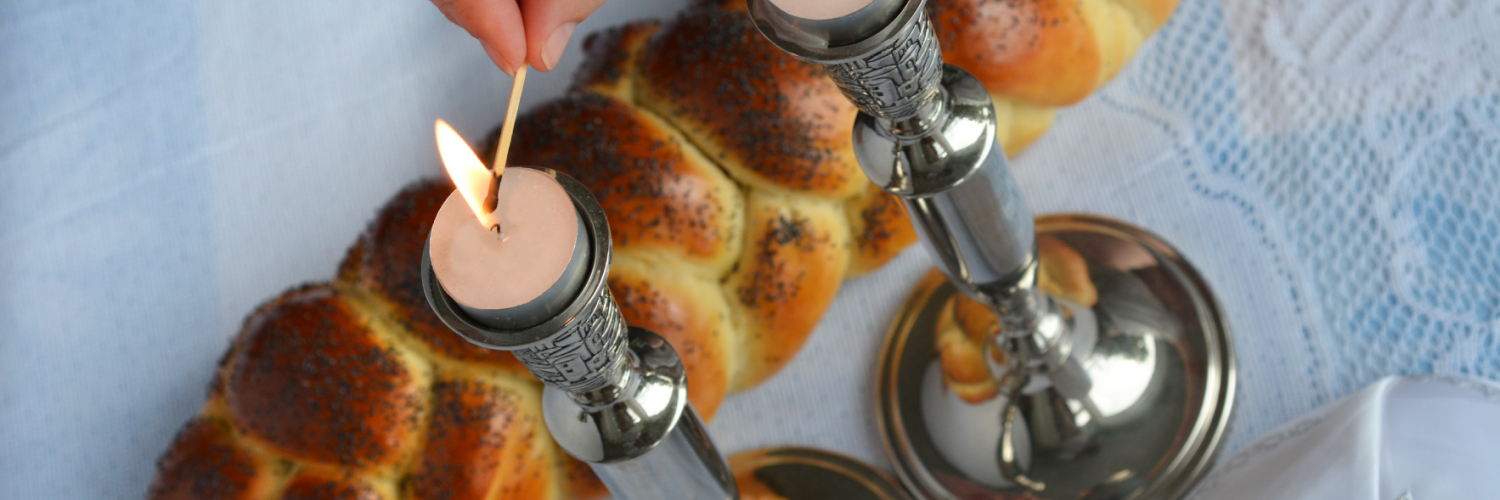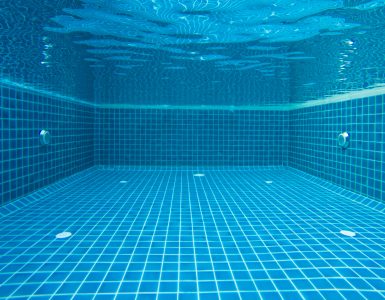In this week’s essay, we will elucidate some of the basic principles of Hilchos Shabbos: Davar sheEino Miskavein, Pesik Reisha, Pesik Reisha d’Lo Nicha Lei, and Sh’vus d’Shvus (“Trei d’Rabbanan”) and explore many of the sources for these fundamental rules. We will then apply these principles to two practical questions, one common and one less common but nevertheless fascinating.
Min haTorah, an act can only constitute a Melacha if the person intended to perform it for its usual and customary purpose. If his action leads to a forbidden outcome that he did not intend to occur (i.e., as a byproduct of his action), it is considered permissible, as the Halacha follows R’ Shimon’s leniency regarding “Davar sheEino Miskavein”, not R’ Yehuda’s strict opinion.[1] According to several Rishonim, R’ Shimon’s reasoning is that a Davar sheEino Miskavein is not considered “Meleches Machsheves” – a condition derived from the building of the Mishkan.[2]
The classic example of a Davar sheEino Miskavein[3] is dragging a bench outdoors and unintentionally creating a furrow. Although creating a furrow is forbidden on Shabbos, since his intention was solely to move the bench (which is entirely permissible[4]), and he has no intention to cause the forbidden outcome, it is permissible. It is similarly permitted to walk on grass on Shabbos and a person does not need to be concerned that he will unwittingly uproot some blades of grass since that is not his intent.
However, this is only true if the outcome is not inevitable. If dragging the bench would inevitably cause a furrow or walking across a lawn would inevitably uproot some grass, it is forbidden even though he has no intention to do so. This is known as “Pesik Reisha” and even R’ Shimon concedes that the act is forbidden.
For this reason, a Nazir may brush his hair but not comb it, as combing it will inevitably detach some hair.[5] Likewise, one is liable for opening a door that will inevitably cause a candle to be extinguished.[6] Similarly, one may not remove berries from a Hadas on Yom Tov, even with the intention of eating them, as doing so will make the Hadas suitable for Mitzva usage (which violates the Melacha of Makeh b’Patish).[7]
The term Pesik Reisha comes from the phrase “Pesik Reisha v’Lo Yamus? – If you decapitate its head will it not die?” referring to cutting off the head of a chicken to give to a child as a toy – an act that is forbidden on Shabbos. Though his sole intention is to give his child a toy and he does not intend to kill the chicken, it is forbidden, as the chicken’s death is inevitable.
The Kovetz Shiurim[8] presents two possible reasons why a Pesik Reisha constitutes a Melacha. One possibility is that in a case of Pesik Reisha we disregard his “lack of intent” and consider it as though he did intend it, as it is reasonable to assume that a person does intend to cause the outcome if it is an inevitable consequence of his action. This is implied by Rashi[9] who states, “Since it is impossible that [the chicken] not die, it is considered as if he intended it”. The other possibility is that although we do not consider the person to have had direct intent for the forbidden outcome, nevertheless, since it is an inevitable consequence of the action that he performed, the outcome is considered an inherent part of that deliberate action.
The Nafka Mina (practical distinction) between these two possibilities is as follows:
There is another important Machlokes Rishonim regarding Pesik Reisha. The view of the Aruch[10] is that a Pesik Reisha is only prohibited when the person has a benefit from the consequence. If he has no benefit and the outcome is of no consequence to him, the act is permissible. This is known as “Pesik Reisha d’Lo Nicha Lei”.
The simple explanation of this position is that if the outcome is of no interest to the one who is performing the action, it cannot be considered a Meleches Machsheves. If so, this would only be applicable to Hilchos Shabbos.[11] However, R’ Akiva Eiger proves that the Aruch’s position applies in other areas of Halacha as well. If so, the basis of the leniency must be that when the outcome is of no interest, it remains a Davar sheEino Miskavein, unlike a “regular” Pesik Reisha.
Tosfos (ibid.) cite the Ri who disagrees with the Aruch. Tosfos imply that the Ri’s reasoning is that a Pesik Reisha d’Lo Nicha Lei cannot be considered “Eino Miskavein”. The Kovetz Shiurim[12] explains that the Ri ascribes to the second possibility delineated above, namely that an inevitable outcome of an action is considered part and parcel of the action. If so, it makes little difference if it affords him no benefit or use – since he had intent to perform the act, that is sufficient to consider it as if he intended to cause the forbidden outcome as well.
In spite of this, Tosfos imply that even the Ri agrees that a Pesik Reisha d’Lo Nicha Lei is only Asur mi’d’Rabbanan.[13] They state this explicitly in Shabbos 103a[14] and in Yoma 35a.[15] The Shita Mekubetzes[16] and Ramban[17] explain that without benefit from the outcome, the act becomes a Melacha she’Eina Tzricha l’Gufa which is only Asur mi’d’Rabbanan. These Rishonim ultimately concur with the Ri and state that it is only Asur mi’d’Rabbanan. The Rivash (394) attests that the Rishonim discounted the position of the Aruch.
The Beis Yosef[18] cites the Machlokes between the Aruch and Tosfos and states that the Semag and Sefer haTerumos appear to side with Tosfos. He also notes that Rabbenu Yerucham attested to the fact that with regard to one type of case they were lenient in “many lands” in line with the Aruch’s position.[19] The Beis Yosef cites the Kol Bo who suggests a technical reason as to why they were lenient in that case. In Shulchan Aruch[20], he cites the Machlokes between Tosfos and the Aruch and also the justification of leniency based on the Kol Bo’s reasoning. The Taz infers that the Shulchan Aruch sides with the stringent position of Tosfos.[21] The Mishna Berura also rules stringently (see the Biur Halacha ibid.)
The Poskim discuss whether a Pesik Reisha d’Lo Nicha Lei includes cases where the person has no interest in the outcome[22], or only when he absolutely doesn’t want it.[23] The Meiri[24], who rules like Tosfos over the Aruch, asserts that R’ Shimon would certainly permit an act whose outcome is not wanted at all. This implies that the Machlokes between Tosfos and the Aruch only applies in a case where the outcomes of the act is of no consequence, not if he absolutely doesn’t want it.[25] However, Tosfos and the other Rishonim in Kesubos imply that the Machlokes even applies in a case where he doesn’t want the outcome.
(This matter requires further study. We noted that the Acharonim explain that the Ri holds that Pesik Reisha is Asur because an inevitable outcome is included in the original act for which the person had intention. This is why the Ri is stringent regarding Pesik Reisha d’Lo Nicha Lei. If so, there would seem no reason to distinguish between an outcome that is of no consequence and one that the person doesn’t want.)
As stated, the Halacha is in accordance with Tosfos and a Pesik Reisha d’Lo Nicha Lei is Asur mi’d’Rabbanan. However, the Mishna Berura rules that although we do not follow the Aruch l’Chatchila, one may be lenient where there are other reasons to permit it.[26] An example is where there is “Trei d’Rabbanan”, as explained below.
The manner in which a Melacha is performed can downgrade it from an Isur d’Oraisa to Isur d’Rabbanan. For example, one is only liable Min haTorah when performing a Melacha for a creative and positive purpose, and not when it is wrought in a destructive manner (unless the destruction is intended to allow a constructive act can be performed, such as tearing a button from a garment so that it can be sewn on again more tightly).
An additional, though more complex, principle, is that one is only liable Min haTorah when performing a Melacha in the regular way and not by means of a Shinui (in which case it is only Asur mi’d’Rabbanan. For example, it is only Asur min haTorah to cut one’s nails with scissors or clippers, not to bite them off.[27] Performing a Melacha with one’s elbow is also considered a Shinui. (This Halacha is extremely significant to those working in the hospital on Shabbos who need to enter medical information on a computer. Many type with a thimble on their finger, which constitutes a Shinui.)[28]
Returning to Pesik Reisha d’Lo Nicha Lei, as stated above, one may be lenient in a case of Trei d’Rabbanan. Let us discuss two relevant cases, one in which we rule stringently and one where there is room for leniency.
- Brushing teeth on Shabbos raises many Halachic issues, among them, smoothing the toothpaste (“Memarei’ach”), the question of Nolad when squeezing the paste from the tube, Uvdin d’Chol, tearing bristles from the brush, squeezing out the brush, etc. A less common question relates to those whose gums usually bleed while brushing. For most people this is an uncommon occurrence and would definitely be considered a Davar sheEino Miskaven. However, for others this occurs every time they brush their teeth. Clearly, they have no intention for this to occur, however, it is a Pesik Reisha and therefore forbidden.
- On Rosh Hashana, some Ba’alei Toke’a find that after blowing many Tekios their lips will bleed. This does not forbid them from blowing Shofar as it is certainly not desirable, and thus constitutes a Pesik Reisha d’Lo Nicha Lei. In addition, it is a “Kilkul” – a destructive outcome and a Shinui, as blood is not usually extracted from a source in that manner. If so, there are two reasons to downgrade the Melacha to the level of a d’Rabbanan, and one may be lenient as it is a case of Pesik Reisha d’Lo Nicha Lei with Trei d’Rabbanan.
[1] Beitza 23b, Shabbos 29b & 95a
[2] See Chagiga 10a-b, Rashi ad. loc. s.v. “Meleches”, and Tosfos, Shabbos 110b s.v. “Talmud”.
[3] Mentioned by the Shulchan Aruch, Orach Chaim 337:1 and 336:3.
[4] [Editor’s note: assuming that there are no issues of carrying in a public or semi-public domain]
[5] Kesubos 6a; see Shabbos 50b.
[6] Shabbos 120b
[7] Sukka 33a
[8] Kesubos 19
[9] Sukka 33b s.v. “v’ha modi R’ Shimon b’pesik reishei v’lo yamus”
[10] Cited in Tosfos in Kesubos ibid. and Shabbos 103a and by the Ramban, Shabbos 111a
[11] See the Rosh, Rashba, and Ran to Shabbos 111a.
[12] ibid. 18
[13] See Kovetz Shiurim ibid.
[14] s.v. b’Ara – see also s.v. “lo tzricha” ibid.
[15] s.v. “hani mili”
[16] Kesubos s.v. “u’b’shita yeshana”
[17] Shabbos 111a, see also the Shulchan Aruch, Orach Chaim 320:18 and Magen Avraham 21
[18] O.C. 320:18
[19] [Editor’s note: The case discussed by the Beis Yosef is a barrel of wine that had an absorbable material used as a stopper that would inevitably be squeezed when removed to dispense the contents, potentially violating the Isur Sechita. Since the details are irrelevant to our discussion of how the Poskim ruled on the question of Pesik Reisha d’Lo Nicha Lei, we will omit further examination of the specifics of that case.]
[20] ibid.
[21] See also the Magen Avraham (23), Machatzis haShekel, and Ma’amar Mordechai (ibid. 18).
[22] “Pesik Reisha d’Lo Ichpas Lei”
[23] See Ramban, Shabbos 111a.
[24] Shabbos 103
[25] See also the Meiri’s comments ibid. 29b.
[26] See 320:53 and Biur Halacha s.v. “Yesh” and s.v. “Tov”.
[27] See Orach Chaim 340:1 and Mishna Berura and Biur Halacha ad. loc.
[28] In some cases, a Shinui renders an act completely permissible, as in the case of Meleches Tochen; we permit mashing fruits with a Shinui in certain cases. However, in other cases, such as in certain examples of Meleches Borer it is till forbidden; if a person removes the “Pesoles” from the “Ochel”, and the “Ochel” is not needed for immediate use, he is liable even if he performs the act in an unusual way and does not use the implement that is usually used for that act.
[28] In some cases, a Shinui renders an act completely permissible, as in the case of Meleches Tochen; we permit mashing fruits with a Shinui in certain cases. However, in other cases, such as in certain examples of Meleches Borer it is till forbidden; if a person removes the “Pesoles” from the “Ochel”, and the “Ochel” is not needed for immediate use, he is liable even if he performs the act in an unusual way and does not use the implement that is usually used for that act.














